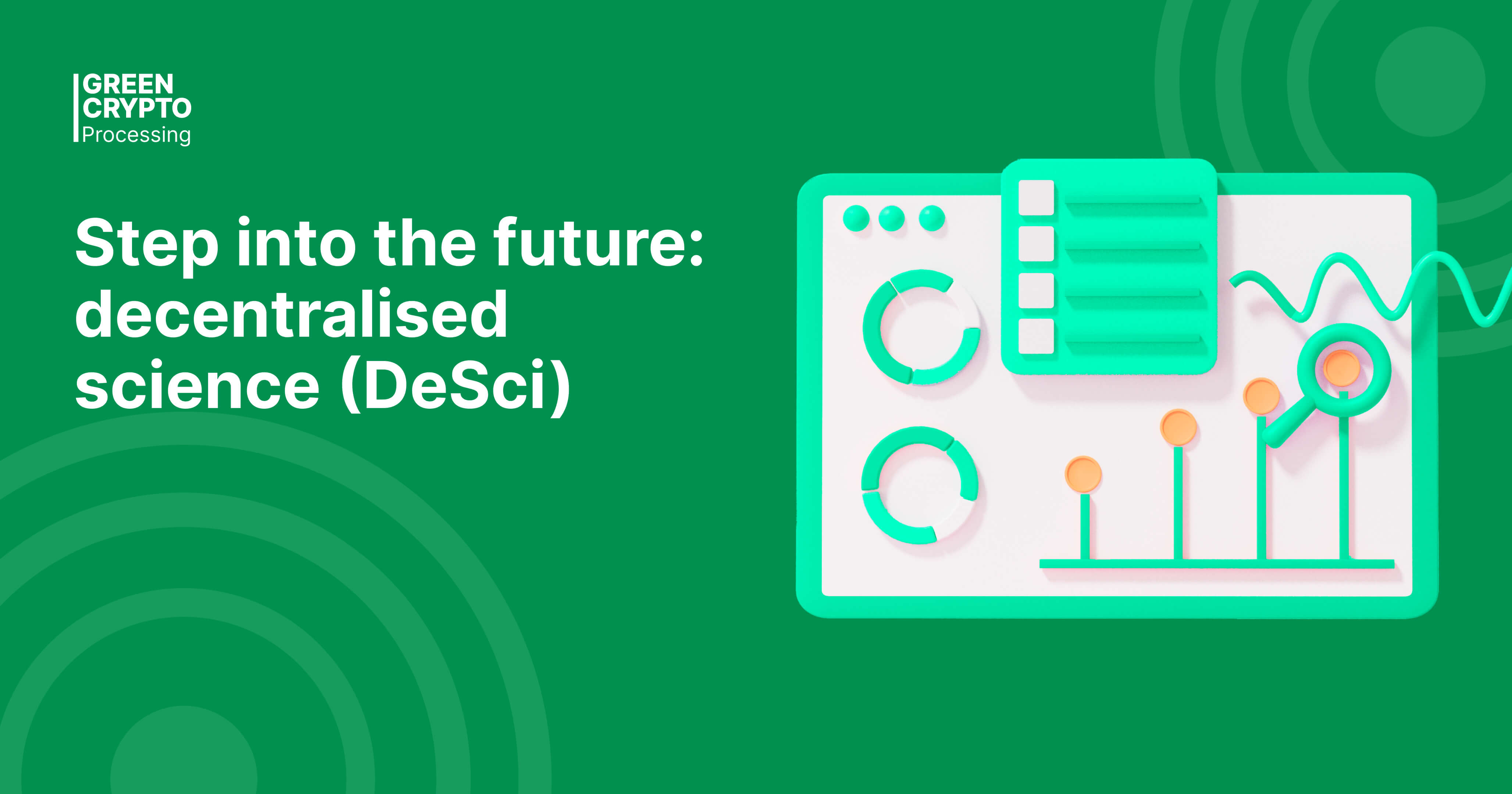Blog
Science, like the financial sector, is actively embracing the latest technologies such as blockchain and Web3, paving the way for decentralised science, or DeSci. This article provides an in-depth look at how blockchain is changing the scientific landscape, how DeSci is dealing with the challenges of the traditional academic system, and why innovative approaches are making research more transparent, accessible and fair.

How does decentralised science work?
Decentralised science (DeSci) is the latest trend that is based on the use of decentralised technologies such as blockchain and Web3 to transform scientific processes. Traditional science (TradSci) has many barriers: centralised institutions and intermediaries, closed data, limited access to funding and a high threshold for entry. DeSci, on the other hand, offers a different model where openness, accessibility and collective participation are at the forefront.
Using tools such as decentralised autonomous organisations (DAOs), smart contracts and blockchain, DeSci aims to make science more democratic. DeSci enthusiasts want to redefine approaches to funding, data management and research, giving scientists more freedom and opportunities to collaborate. This makes science more inclusive and problem-oriented.
How does DeSci contribute to the advancement of science?
DeSci actively uses the potential of Web3 to address key challenges in traditional science. Let's take a look at the main ways in which this model is truly beneficial:
- Funding.
With DAO, funding for scientific projects becomes more transparent and fair. Funds are distributed by community members, eliminating the influence of outside interests and encouraging support for innovative ideas.
- Accessibility.
Smart contracts automate processes related to data distribution and the publication of research results, making them accessible to a wide audience. This facilitates access to scientific knowledge and encourages open communication between scientists.
- Systemness.
In TradSci, the problem of systematicity remains acute. DeSci, through its transparency and use of blockchain, makes data open, ensuring the validity of results and the ability to control peer review.
Decentralised science in practice
- Scientific publishing.
DeSci platforms are changing the game by allowing authors to store and publish research papers in decentralised journals where data is protected from manipulation and censorship.
- Research funding.
DAOs allow researchers to apply directly to the community for funding or rewards, bypassing complex bureaucratic procedures.
- Data sharing and co-operation.
DeSci platforms allow scientists to share knowledge in real time, which greatly accelerates co-operation processes, as well as to monetise their discoveries.
- Reviewing.
Decentralised platforms offer a transparent approach to the peer review system, facilitating a more honest and accountable assessment of scientific work.
- Education.
The emergence of DeSci platforms opens up access to courses and lectures by the world's leading scientists, allowing everyone to learn at their convenience.
DeSci vs. TradSci
Although traditional and decentralised science share common goals, DeSci fundamentally changes the approach to research and knowledge dissemination.
1. Transparency and trust.
DeSci makes scientific data consistent and immutable, reducing the risk of manipulation and increasing trust in research results. In traditional science, research results often do not extend beyond centralised institutions and peer-reviewed journals, which creates barriers to verification and reproducibility.
2. Accessibility and inclusivity.
Unlike TradSci, where access to information is often limited to paid subscriptions and closed databases, DeSci opens up knowledge to everyone, regardless of their financial means or geographical location.
3. Collaboration and innovation.
DeSci fosters international collaboration and facilitates interaction between scientists through decentralised platforms and open data. In traditional science, interdisciplinary and international collaboration often faces bureaucratic and financial barriers.
4. Funding and incentives.
In DeSci, scientists can receive funding directly from communities and concerned individuals, increasing the efficiency and independence of research. In TradSci, funding is limited to grants and sponsorships, which makes scientists dependent on the opinions and interests of external organisations.
Decentralised science is already demonstrating how modern technology can transform established scientific processes, making them more efficient, transparent and fair. DeSci promises to accelerate scientific discovery, widen access to research, and perhaps change the world the way the Internet once did.